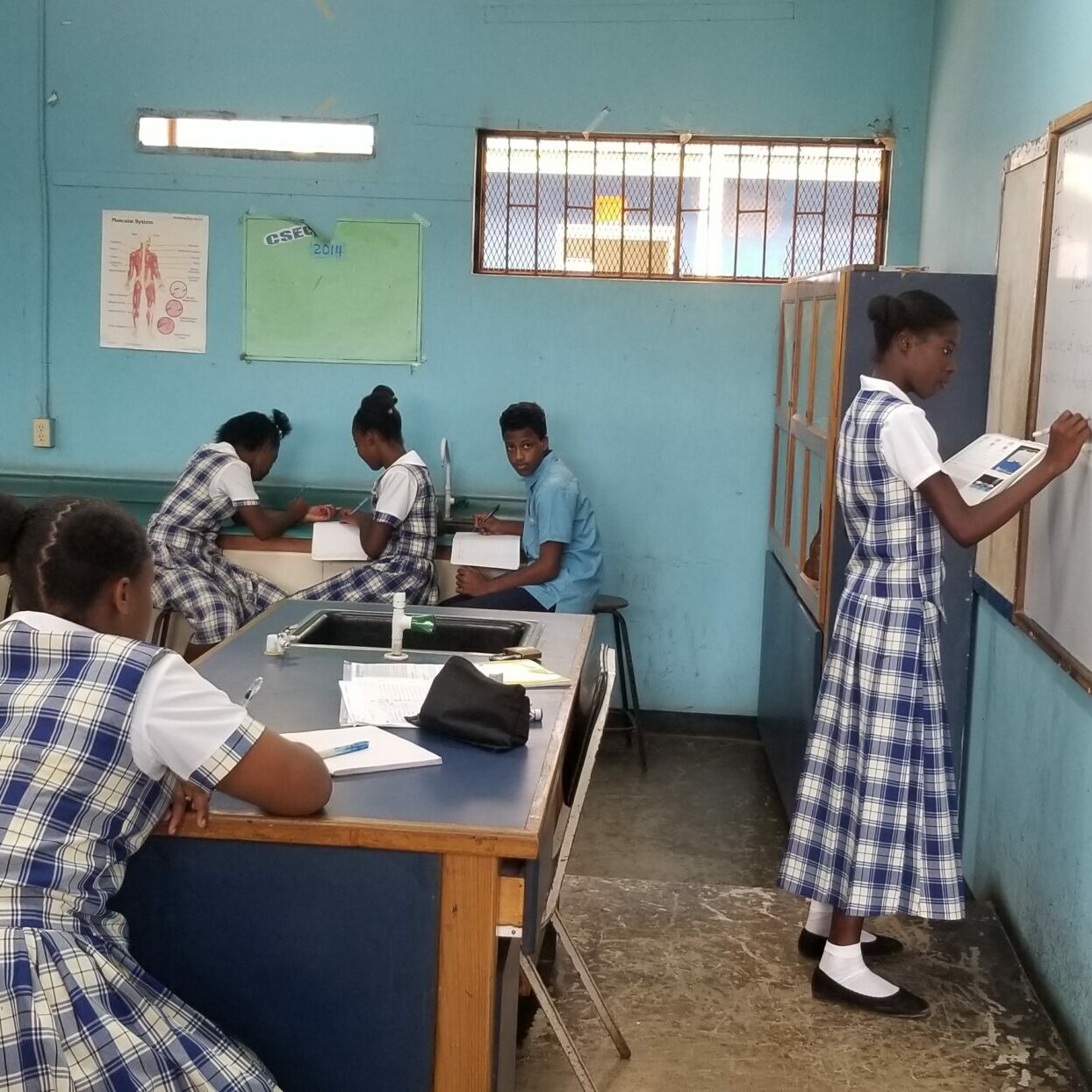Academic Courses
Principles of Accounts
Principles of Accounts is a course of study that provides an introduction to the principles and techniques that accountants employ in measuring, processing, evaluating and communicating information about the financial performance and position of a business.
The course in Principles of Accounts helps students to develop an understanding of a range of theoretical and practical techniques used in accounting. It helps to develop skills that should enable them to participate more effectively and responsibly in today’s business environment, to improve the management of personal financial activities, such as, budgeting, savings and investment. In addition, this course prepares students for postsecondary and professional studies in accounting.
Principles of Business
Principles of Business focuses on the theoretical and practical aspects of business activities. It provides a framework to assist in more informed decision-making by individuals in their role of producers or consumers. This syllabus provides opportunity for students to develop entrepreneurial and managerial skills necessary to survive and prosper in a local, regional and global dynamic business environment. It also engages students in conducting research which helps to improve their communication and critical thinking skills and creates an awareness of business ethics and social responsibilities.
Social Studies
Social Studies contributes to the effective development of the learner by increasing personal and social awareness, and by placing emphasis on values as well as on social and interpersonal relationships. This syllabus seeks to ensure that students develop the necessary skills and at the same time introduces them to knowledge of social phenomena that may enhance their effectiveness as social participants in the Caribbean community. It is also intended that, through the syllabus, the process of valuing would be made conscious so that persons become aware of their position, thus enabling them to bring conscious criteria to bear on their choices as social participants.
Office Administration
Office Administration is a Business Education subject concerned with the study of administrative principles, policies, procedures and technological competencies governing the modern office environment. The content and teaching strategies used reflect current trends in the modern office. The syllabus aims to provide students with knowledge, skills and attitudes for immediate access to entry-level positions such as administrative assistants, clerical assistants, receptionists, record management clerks, accounting clerks and factory and dispatch clerks and other related positions.
Agriculture
Agricultural Science is a broad multidisciplinary field that encompasses aspects of exact, natural, economic and social sciences that are used in the practice and understanding of agriculture and the environment.
Electrical
Electrical and Electronic Engineering Technology is a programme of study that offers knowledge and skills for work and lifelong learning in various engineering and technology fields. Electrical and electronics engineers manipulate electricity and use it to design and manufacture products that transmit power or process information. The syllabus, therefore, offers broad-based competencies in an appropriate combination of interdisciplinary processes, evidence-based delivery and assessment and employability skills in a world of school and work training environment.
History
Technical Drawing
The Technical Drawing syllabus focuses on the development of competencies in geometric construction, descriptive geometry, engineering designs and graphics, electrical, mechanical, manufacturing and construction drafting. These are geared toward the development of students’ spatial visualisation, technical communication, interdisciplinary and employability skills. These skills are useful for careers in drafting, architecture, surveying, civil engineering, interior designing, design engineering and in the general construction and manufacturing industries. In addition, the programme of studies in the syllabus caters for those students who will seek entry level employment in related fields.
Building Technology
Food & Nutrition
H & S Biology
Human and Social Biology is concerned with the study of the structure and functioning of the human body. It also involves the application of biological principles, knowledge and skills, and technological advances, to the maintenance of health and to solve the problems of living together. The subject incorporates the view that human beings have a responsibility to their environment and, as such, have an obligation to conserve, protect, maintain and improve its quality.
Home Economics
Home Economics is an interdisciplinary field of study that comprises three major options: Family and Resource Management; Textiles, Clothing and Fashion; and Food, Nutrition and Health.
Computer Repairs
This syllabus is designed to provide a coherent view of the significance of information in a socio-economic context. Emphasis is placed on application of knowledge, problem-solving using the computer, and proficiency in using productivity tools. This approach has been adopted in recognition of the impact that changes in the availability of information can have on the educational process. Focus is placed on getting students to develop skills for life in an increasingly technological world, rather than on students absorbing a myriad of seemingly unrelated facts which may have only short term relevance.
Integrated Science
Integrated Science is an interdisciplinary subject which provides students with the opportunity to study issues relevant to Science in everyday life. Such study integrates perspectives from various disciplines including Biology, Chemistry, Physics, Earth Science and others.
Mathematics
Mathematics is a precise and concise means of communicating patterns, relationships, ideas and values in a quest for a deeper and better understanding of the world around us. It requires observation, representation, investigation and comparison of patterns in social and physical phenomena.
English
The Caribbean is a linguistically diverse region. The development of communicative competence in Caribbean Standard English (CSEC) enables citizens to function nationally, regionally and internationally.
For students to negotiate successfully the environment in which they work and play, it is critical that they develop language skills that will help them to understand what they listen to, view and read, and to respond effectively in speech, writing and other expressive media.

